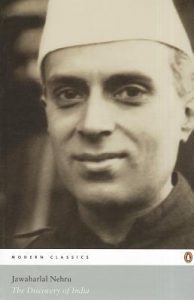 As long as Lions do not have story-tellers, the history of the hunt always glorifies the hunter. This adage is very much germane to India and its history, for it lacks historians of Indian origin in the pre-Nehru era, and much of India’s history is written by the foreigners, who visited India, with contempt and jaundiced opinions. The account of Indian history by outsiders is inveighed against Indians by marginalizing, and quoting as parochial in thought and incestually looking country. Unfortunately, this behavior is also observed in most of today’s Indians who talk glibly of modernism and modern spirit and the essence of Western culture and are at the same time ignorant of their own culture. Today most Indians take the external forms and outer trapping of the West, and imagine that they are in the vanguard of an advancing civilization. Naive and shallow and yet full of their conceits, they live an artificial life which has no living contact with the culture of the East or of the West.
As long as Lions do not have story-tellers, the history of the hunt always glorifies the hunter. This adage is very much germane to India and its history, for it lacks historians of Indian origin in the pre-Nehru era, and much of India’s history is written by the foreigners, who visited India, with contempt and jaundiced opinions. The account of Indian history by outsiders is inveighed against Indians by marginalizing, and quoting as parochial in thought and incestually looking country. Unfortunately, this behavior is also observed in most of today’s Indians who talk glibly of modernism and modern spirit and the essence of Western culture and are at the same time ignorant of their own culture. Today most Indians take the external forms and outer trapping of the West, and imagine that they are in the vanguard of an advancing civilization. Naive and shallow and yet full of their conceits, they live an artificial life which has no living contact with the culture of the East or of the West.
To my delight, here comes the man garbed in Sherwani, Cambridge-educated, who is very much misunderstood by the so-called pseudo-elites and pseudo-intellectuals of India today, who reduced this man to a mere political party — Jawaharlal Nehru. Written over five months while in prison, Discovery of India, to my mind, is a living history of India. Although the book seems disjointed, jumbled and lacks unity, the richness of Indian history and its civilization forms the sinews of the book that bind it together. Nehru’s discovery of India spans from the Indus Valley Civilization-to-Muslim Invasions-to-British Empire in India. It is a manifestation of Nehru’s quest for India’s past. Much of ink flowed from Nehru’s pen analyzing texts like the Vedas and the Arthashastra, and personalities like the Buddha and Mahatma Gandhi.
Nehru writes at length covering the iniquities, rapacities, draconian laws and conditions of British rule in India, especially the way it made India static, dormant, and imprisoned the minds of the people of India interspersed with differences between Orient and the Occident cultures. In this book, Nehru evokes Rabindranath Tagore’s thoughts and musing, which din in my ear as I read the book and also I write this review. My heart bled as I read these lines
‘ The demon of barbarity has given up all pretense and has emerged with unconcealed fangs ready to tear up humanity in an orgy of devastation. From one end of the world to the other, the poisonous fumes of hatred darken the atmosphere. The spirit of violence which perhaps lay dormant in the psychology of the West has at last roused itself and desecrated the spirit of man.
The wheels of fate will some day compel the English to give up their Indian empire. But what kind of India will they leave behind, what stark misery? When the stream of their centuries’ administration runs dry at last, what a waste of mud and filthy they will leave behind. As I look round I see the crumbling ruins of a proud civilization strewn like a vast heap of futility!
By unrighteousness man proposers, gain what appears desirable, conquers enemies, but perishes at the root.
This book is a must read for those virgin minds unassaulted by the thoughts of what India was in the past!
Tagore writes –“To know and understand India one has to travel far in time and space, to forget for a while her present condition with all its misery and narrowness and horror, and to have glimpses of what she was and what she did. To know my country, one has to travel to that age, when she realized her soul and thus transcended her physical boundaries, when she revealed her being in a radiant magnanimity which illumined the eastern horizon, making her recognized as their own by those in alien shores who were awakened into a surprise of life; and not now when she has withdrawn herself into a narrow barrier of obscurity, into a miserly pride of exclusiveness, into a poverty of mind that dumbly revolves around itself in an unmeaning repetition of a past that has lost its light and has no message for the pilgrims of the future.”